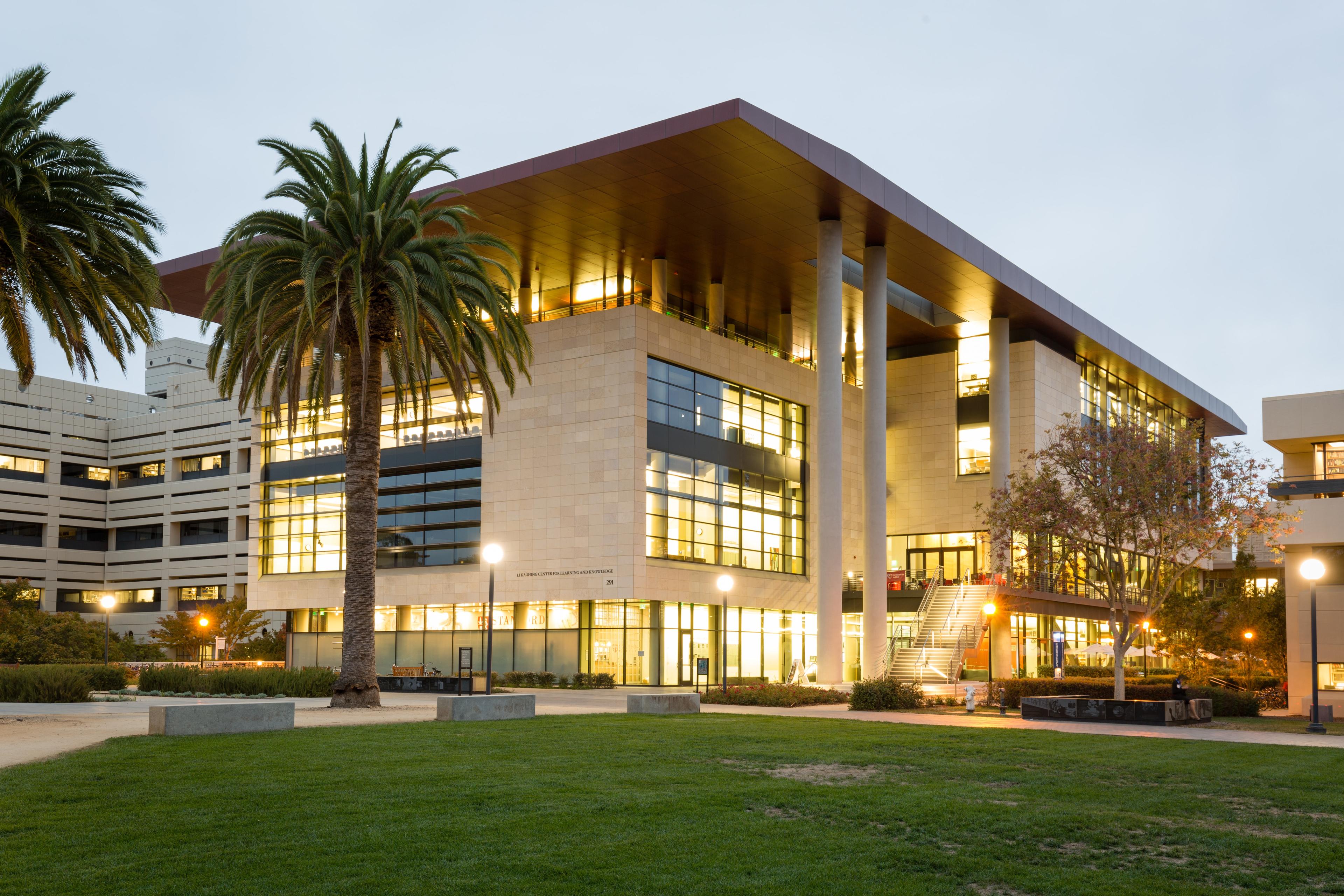25 Popular Medical Residency Programs
Explore the top 25 medical residency programs that are highly sought after by aspiring doctors.
Posted July 3, 2025

Join a free event
Learn from top coaches and industry experts in live, interactive sessions you can join for free.
Table of Contents
In the competitive field of medical education, choosing the right residency program is a critical step towards a successful career. With countless options available, it can be overwhelming to determine which programs are truly worth considering. To help aspiring medical professionals make informed decisions, this article explores 25 popular medical residency programs that consistently offer exceptional training and opportunities for growth.
25 Popular Medical Residency Programs
When it comes to popularity, certain residency programs have earned a reputation that attracts a significant number of applicants each year. These programs often offer a combination of outstanding faculty, cutting-edge research opportunities, and diverse clinical experiences. Applying to a popular residency program can be highly competitive, but the rewards can be well worth it.
- Johns Hopkins University
- Massachusetts General Hospital
- University of California San Francisco
- Brigham and Women's Hospital
- Mayo Clinic College of Medicine and Science
- Duke University Hospital
- Washington University School of Medicine
- University of Texas Southwestern Medical Center
- Columbia University Irving Medical Center
- Michigan Medicine (Ann Arbor)
- University of Washington
- Vanderbilt University Medical Center
- Stanford Health Care
- McGaw Medical Center of Northwestern University
- New York University School of Medicine
- University of Pennsylvania Health System
- Emory University School of Medicine
- UCLA David Geffen School of Medicine
- Pennsylvania Hospital of Penn Medicine
- Cleveland Clinic Foundation
- Beth Israel Deaconess Medical Center
- University of Chicago Medicine
- Weill Cornell Medical Center
- Icahn School of Medicine at Mount Sinai
- Yale-New Haven Hospital
One of the most renowned and sought-after residency programs is at Johns Hopkins University. Known for its commitment to excellence in medical education, Johns Hopkins offers a wide range of specialties and subspecialties for residents to choose from. The program boasts a faculty of world-class physicians and researchers who are at the forefront of medical advancements. Residents at Johns Hopkins have the opportunity to work alongside these experts and contribute to groundbreaking research.
Another popular choice among medical students is the residency program at Massachusetts General Hospital. Affiliated with Harvard Medical School, this program offers a comprehensive and rigorous training experience. Residents benefit from the hospital's strong emphasis on clinical excellence and its commitment to providing high-quality patient care. The program also offers numerous research opportunities, allowing residents to explore their interests and contribute to the advancement of medical knowledge.
Mayo Clinic is another highly regarded institution for medical residency training. With campuses in Minnesota, Arizona, and Florida, Mayo Clinic offers a diverse range of clinical experiences across different regions of the United States. The program is known for its collaborative and patient-centered approach to healthcare, with an emphasis on teamwork and interdisciplinary collaboration. Residents at Mayo Clinic have the opportunity to work with a multidisciplinary team of experts, gaining valuable insights and skills that will serve them well in their future careers.
Stanford Health Care is also a popular choice for medical residency training. Located in the heart of Silicon Valley, Stanford offers a unique blend of academic excellence and innovation. The program provides residents with access to cutting-edge technology and resources, allowing them to stay at the forefront of medical advancements. Stanford Health Care is known for its strong emphasis on research and innovation, making it an ideal choice for residents who are passionate about pushing the boundaries of medical knowledge.
Lastly, the University of California – San Francisco (UCSF) is renowned for its exceptional residency programs. UCSF offers a wide range of specialties and subspecialties, providing residents with a comprehensive and well-rounded training experience. The program is known for its commitment to diversity and inclusion, creating a supportive and inclusive learning environment for residents from all backgrounds. UCSF also has a strong focus on community engagement and public health, preparing residents to address the healthcare needs of diverse populations.
Each of these popular residency programs provides residents with a rigorous and comprehensive training experience, enabling them to acquire the skills necessary for a successful medical career. While the competition to get into these programs may be fierce, the opportunities for growth, learning, and professional development make them highly sought-after choices for aspiring physicians.
Residency Program Comparison
Choosing the right residency program requires careful consideration of various factors. When comparing programs, aspiring residents should evaluate:
- Mentorship opportunities
- Research resources and involvement
- Curriculum structure
- Available specialties
- Geographic location
By comparing these aspects, applicants can find programs that align with their interests and career goals.
Mentorship opportunities play a crucial role in a resident's professional development. A strong mentor can provide guidance, support, and valuable insights into the field. When comparing residency programs, aspiring residents should look for programs that offer robust mentorship programs. This may include opportunities for one-on-one mentorship with experienced faculty members, regular meetings to discuss career goals and progress, and access to networking events where residents can connect with mentors in their desired specialty.
Research resources and involvement are also important factors to consider when comparing residency programs. Residents who are interested in pursuing academic careers or want to contribute to medical research should look for programs that offer ample research opportunities. This may include access to state-of-the-art research facilities, funding for research projects, and mentorship from faculty members who are actively involved in research. Additionally, residents should consider the program's track record in publishing research papers and presenting at conferences, as this can indicate the level of research involvement and support provided.
The curriculum structure of a residency program is another crucial aspect to evaluate. A well-structured curriculum ensures that residents receive comprehensive training in their chosen specialty. When comparing programs, aspiring residents should look for programs that offer a balanced mix of didactic lectures, hands-on clinical experience, and opportunities for procedural training. Additionally, residents should consider the program's approach to interdisciplinary education, as exposure to different specialties can enhance their overall medical knowledge and skills.
The available specialties within a residency program are also important to consider. Aspiring residents should look for programs that offer a wide range of specialties to choose from, allowing them to explore different areas of medicine and find their passion. This may include specialties such as internal medicine, pediatrics, surgery, obstetrics and gynecology, psychiatry, and more. Having access to a diverse range of specialties can provide residents with a well-rounded education and help them make informed decisions about their future career path.
Geographic location is another factor that should not be overlooked when comparing residency programs. The location of a program can have a significant impact on a resident's overall experience and quality of life. Factors to consider include the cost of living, proximity to family and friends, access to recreational activities, and the availability of job opportunities after residency. Additionally, residents should consider the cultural and social aspects of the location, as this can greatly influence their personal and professional growth.
By thoroughly evaluating these aspects, aspiring residents can make informed decisions when comparing residency programs. It is important to carefully consider each factor and prioritize what is most important to them in order to find a program that aligns with their interests, career goals, and overall well-being.
5 Application Strategies
Securing a position in a popular residency program requires a well-executed application strategy. To enhance your chances of success, consider the following tips:
1. Start early and gather required documents
When it comes to applying for a residency program, time is of the essence. Starting early allows you to gather all the necessary documents without feeling rushed. Make a checklist of the required documents, such as your CV, transcripts, and test scores, and ensure that you have them readily available. This way, you can avoid any last-minute panic and focus on presenting a complete and organized application.
2. Write a compelling personal statement
Your personal statement is your chance to showcase your unique qualities and experiences. Take the time to craft a compelling narrative that highlights your passion for the field and your dedication to patient care. Share specific examples of how your past experiences have shaped your desire to pursue a residency in your chosen specialty. Remember, a well-written personal statement can make a lasting impression on the selection committee and set you apart from other applicants.
3. Obtain strong letters of recommendation
Letters of recommendation play a crucial role in the residency application process. Seek out individuals who know you well and can speak to your abilities and potential as a future resident. Aim for a diverse range of recommenders, such as attending physicians, mentors, or research supervisors, to provide a well-rounded perspective on your capabilities. Request these letters well in advance, giving your recommenders ample time to write thoughtful and detailed letters that highlight your strengths.
4. Participate in research or clinical projects
Engaging in research or clinical projects demonstrates your commitment to advancing medical knowledge and your ability to contribute to the field. Consider getting involved in ongoing research studies or volunteering in clinics to gain valuable experience. Not only will this help you develop important skills, but it will also provide you with talking points during interviews and make your application stand out.
5. Prepare thoroughly for interviews
Interviews are a critical component of the residency application process. To prepare effectively, research the program thoroughly and familiarize yourself with its mission, values, and unique features. Practice common interview questions and develop thoughtful responses that highlight your qualifications and fit with the program. Additionally, consider participating in mock interviews or seeking guidance from mentors to refine your interview skills. The more prepared you are, the more confident and articulate you will appear during the actual interview.
Implementing these strategies will increase your competitiveness and demonstrate your commitment to a particular program. Remember, the residency application process is highly competitive, so it is essential to put your best foot forward and present a well-rounded application that showcases your strengths and dedication to the field. Good luck!
Residency Selection Criteria
Medical residency programs have their own set of criteria when selecting candidates. While the specifics may vary, some common factors that programs typically consider include:
- Academic performance and USMLE scores
- Letters of recommendation
- Extracurricular activities and leadership roles
- Research experience
- Personal qualities and communication skills
Understanding these criteria can help you prepare a strong application that highlights your strengths and aligns with what programs are looking for in potential residents.
Ultimately, selecting the right medical residency program is a deeply personal decision that should be based on your aspirations, career goals, and the opportunities a program can provide. Researching popular programs, comparing their offerings, and strategizing your application can greatly increase your chances of securing a position in a program that will nurture your professional growth and set you on a path to success.
Final Thoughts
Choosing the right residency program is one of the most important decisions in your medical career. While prestige and popularity can guide your research, the best fit will ultimately depend on your values, goals, and the kind of physician you want to become. As you navigate this next step, from program selection to application strategy and interviews, know that support is available.
Top medical coaches have helped applicants match into programs like Hopkins, Mass General, UCSF, and more. If you want one-on-one guidance through your personal statement, ERAS strategy, or interview prep, browse med residency coaches here. The right mentor can make this process clearer, calmer, and more successful.
Read these next:
- Top 10 Medical Schools in the U.S.
- The Different Types of Medical Careers – and Which One is Right for You
- DO vs. MD: Degree Differences in Education, Jobs & Salary
- How Long is Medical School – A Year-by-Year Breakdown
- The Ultimate Guide to the Medical School Application
FAQs
What makes a residency program “top” or “popular”?
- Top programs are usually well-known because of things like faculty reputation, research opportunities, diverse clinical cases, and strong alumni outcomes. Look beyond name recognition to factors that match your goals like mentorship, specialty exposure, and culture.
How can I figure out which residency fits me best?
- Start by listing what matters most: mentorship, location, research, work-life balance, patient demographics, etc. Then compare programs based on those priorities and reach out to current residents or alumni for firsthand insight.
Is applying to a big-name program worth the stress?
- It can be, but it’s not the only path. High-tier programs offer lots of resources and prestige, but mid-tier programs may offer better work-life balance or specialty fit. Aligning a program with your long-term goals matters more than brand alone.
How do I stand out when everyone applies to the same programs?
- Show a clear fit in your ERAS and interviews. Highlight your unique story, clinical experiences, research, and leadership. And don’t forget the fit factors—program culture, values, and your own contributions beyond academics.
What should I do if I don’t match into my top programs?
- Don’t panic. Start backup steps: consider SOAP, seek mentorship from programs that didn't match you, strengthen weak areas (like research or board scores), and reapply with a focused list next cycle.
Browse hundreds of expert coaches
Leland coaches have helped thousands of people achieve their goals. A dedicated mentor can make all the difference.


















